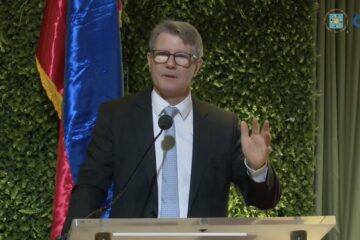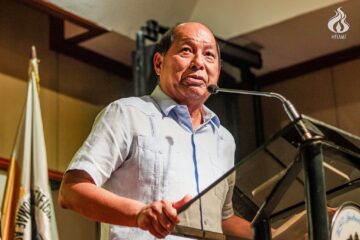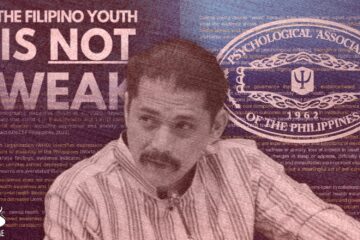JOURNALISM COORDINATOR and editor of PressONE.PH Felipe Salvosa II has encouraged the youth to be cautious in consuming news on social media, especially amid a pandemic through a podcast titled “Talakayan” on Saturday.
Salvosa pointed that the youth are able to express, communicate and consume information through social media that made it have a huge impact on young people.
“Young people are able to express themselves more, especially on social media, and I can see overall […] that our young people today are very much oriented towards achieving social justice,” Salvosa said.
Salvosa however said that social media is not value-neutral as some people use social media as an avenue to introduce misinformation and disinformation. He encouraged the youth to be more vigilant in reading and consuming news on social media.
“Sa tingin ko yan ang challenge sa kabataan ngayon na gamitin nila yung kanilang passion, yung kanilang energy, yung kanilang kaalaman, yung puso nila na biased toward social justice to counter these evil things,” Salvosa said.
Salvosa also stated how different people consume news on their phones than in the newspapers. He pointed out how the news is competing with social media in combating misinformation given that anything could be shared on the internet.
“The rules have changed. News is competing with other forms of information which may contain fake news, historical revisionism or outright lies and misinformation,” Salvosa said.
Salvosa also warned the youth to not fall for the false information spreading on social media especially amid the pandemic where medical disinformation is rampant.
“According to studies, one of the biggest disinformation out there is medical disinformation,” he said.
He added that medical disinformation can instruct vulnerability for the public’s health and safety.
“Marami kasing tao na naghahanap ng medical information sa internet and that makes people vulnerable to disinformation and that is a serious concern especially during a pandemic,” he explained.
The World Health Organization (WHO) has identified in a February 2020 report the rapid spread of unfounded information regarding the new string of the coronavirus.
“Due to the high demand for timely and trustworthy information about 2019-nCoV, WHO technical risk communication and social media teams have been working closely to track and respond to myths and rumors […] that can potentially harm the public’s health,” the report stated.
Salvosa also urged the students to fight against disinformation through educating others and a ‘positive engagement.’
“[W]e [must] keep on talking to people, we keep on answering questions, we try not to be combative, we try not to be argumentative because I think that’s the way to win over hearts and minds,” he said.
Salvosa also reminded the students that educating others entails support from research and studies.
“When you say educate them is that we suppose that we have done our own research. We have to arm ourselves with data [and] statistics with research,” he said.
Salvosa stressed the importance of engaging in dialogue as a way to learn and educate oneself.
“Learning involves doing a two-way dialogue: listening to other people and not keeping a close mind on issues,” Salvosa said.
“Talakayan” is a three-episode online podcast project of Artlets Student Council in collaboration with UST Legal Management Society and UST Political Science Forum. F



